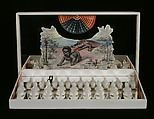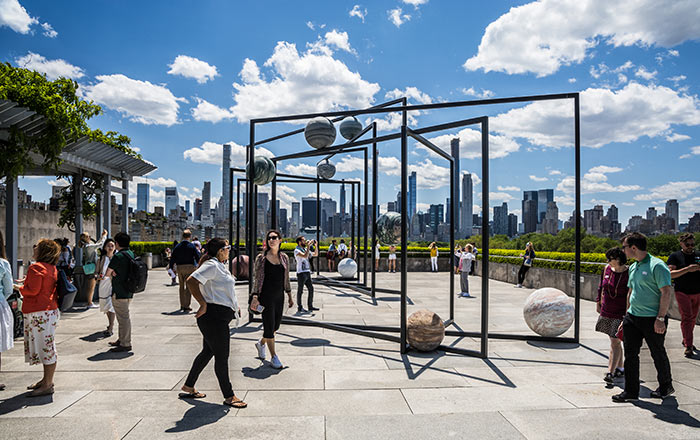Whitey's Way
Betye Saar American
Not on view
With her assemblages, Saar pioneered a critique of racial stereotypes and their repetition in American material culture. Her work frequently draws upon racist memorabilia salvaged from flea markets and thrift shops. Whitey’s Way displays a row of ceramic alligators, one of which clamps a small baby figurine in its jaws, inspired in part by the rumor that white Southerners, particularly in Florida, used African American children to bait the reptiles. Metaphorically, it alludes to the predatory politics and policies of white Southern Americans ("whitey’s way"). The assemblage was first shown in the controversial 1971 exhibition Contemporary Black Artists in America at the Whitney Museum of American Art. Concerned that the reference would miss later generations of viewers, Saar added the found postcard in 1996.
Due to rights restrictions, this image cannot be enlarged, viewed at full screen, or downloaded.

